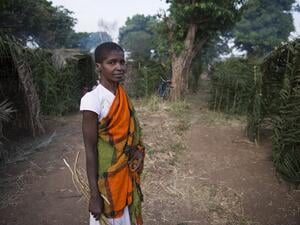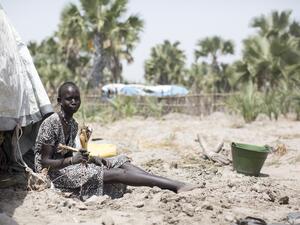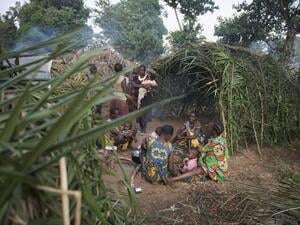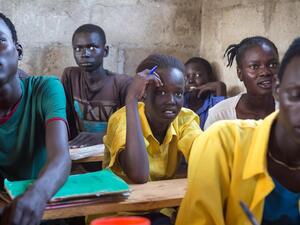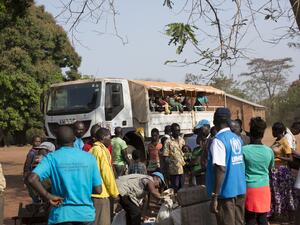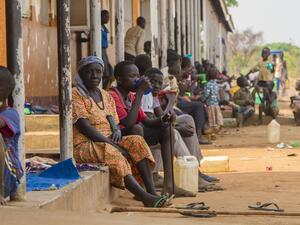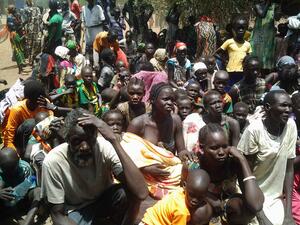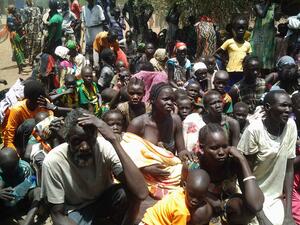Sudan issues ID cards to tens of thousands of South Sudanese
Sudan issues ID cards to tens of thousands of South Sudanese

South Sudanese queue to be registered in South Sudan. With ID cards they will be able to access many rights.
KHARTOUM, Sudan, March 3 (UNHCR) - The Sudan government has begun to register South Sudanese living in the country and issuing them with ID cards that give them the right to work and access to basic services.
More than 54,000 South Sudanese have been registered and some 37,000 identity cards produced since the programme began at the start of February under an agreement between UNHCR, Sudan's Commissioner for Refugees and the Directorate General of Passports and Immigration.
Registered South Sudanese over the age of five are given an ID card for the duration of their stay in Sudan. The card gives them the same rights and services as Sudanese citizens, including the right to work and buy property, as well as freedom of movement and to live anywhere in the country.
An estimated half-a-million South Sudanese are living in Sudan. This includes the 120,000 who have fled there since South Sudan's conflict erupted in December 2013, and an estimated 350,000 others who remained in Sudan after South Sudan's independence in 2011.
Shortly after the violence broke out in South Sudan, the Sudanese government announced that South Sudanese should be treated as Sudanese citizens and has maintained an open door policy since then. Providing a legal proof of identity and the unrestricted right to stay in the country for as long as the conflict continues, represent major protection safeguards against forced return.
UNHCR is supporting the implementation of this initiative, both financially and with technical capacity. Registration centres have been established in 12 sites in Khartoum state, where the exercise is expected to continue until March before being rolled out to other locations across the country.
White Nile state, where an estimated 66,000 South Sudanese refugees live in six sites will be the next location. Subsequently, registration and provision of ID cards will continue in other states over an 18-month period. After that, various mobile units will be maintained to register new arrivals from South Sudan.
Since the start of the South Sudan emergency, UNHCR and partners have assisted more than 84,000 South Sudanese arriving in Sudan. In sites in White Nile, South and West Kordofan states, basic needs have been progressively met through the establishment and expansion of essential services by government counterparts, the Sudanese Red Crescent Society, UN agencies and NGOs.
In Khartoum, more than 3,000 families have been assisted with basic items to improve their living conditions. Identifying vulnerable people and providing them with assistance remained a key focus of the response countrywide. UNHCR carries out family tracing and reunification for unaccompanied and separated children, livelihoods initiatives for women at risk, and material assistance to elderly and disabled South Sudanese.
Violence in South Sudan has displaced over 2 million people during the last 14 months, including more than 500,000 who fled across the border to neighbouring Ethiopia (196,000), Kenya (45,000), Sudan (121,000) and Uganda (144,000).

